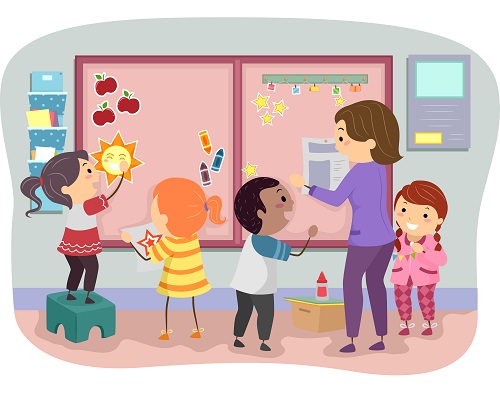The start of the new school year is a busy time for many families as they juggle hectic schedules with homework, extracurricular activities and meeting new learning goals.
However, the start of this school year is even more exciting than usual. It is the beginning of a new era for our nation’s classrooms with the passing of the Every Student Succeeds Act (ESSA)—the new federal law governing K-12 education.
While you may not see immediate change in their schools and classrooms this year, states are actively working to craft new education plans that will guide the implementation of ESSA and will, hopefully, make high-quality, well-rounded education a reality for every child.
So what does all of this mean for you and your child? Read our info sheet to learn more and here are The 5 ‘T’s of ESSA you need to know about ESSA.
1. Trial and Error
The Every Student Succeeds Act (ESSA) represents a shift in our nation’s education system. This new law gets rid of No Child Left Behind (NLCB) and allows for more state and local flexibility. States now have more responsibility over their accountability systems, assessments, standards and school improvement plans than they had in the past.
Policymakers are optimistic that this new law strikes the right balance that will work best for students. ESSA also includes many provisions that require schools to be partners with families in their child’s education. This means that from school improvement plans to state report cards, families have more say in the education of their children.
2. Tots to Teens
ESSA helps states, school districts and schools increase their ability to provide students a well-rounded and high-quality education, from early childhood through their teenage years. Under ESSA, school districts will have access to resources and the flexibility to use them to address the most pressing needs in their schools, such as access to early childhood education programs, bullying prevention, increased access to personalized learning activities and technology, music and arts programs.
3. Testing
The new law requires each state to administer assessments in mathematics and reading/language arts every year in grades 3-8 and once at some point in grades 9-12. States must also administer a science assessment once in grades 3-5, 6-9 and 10-12.
ESSA also maintains the requirement that at least 95% of all students participate in the state assessment. Though this may seem like a lot of testing, high-quality assessments provide valuable information to parents, teachers and school leaders about the growth and achievement of their students.
4. Timelines
Portions of the law will be implemented in schools starting this fall. However, new state accountability systems will need to be developed by states (in collaboration with parents and other community leaders) over the next year, so these systems will not go into effect until the 2017-2018 school year.
The next several months will be key for states to develop state accountability systems that are reflective of the goals of students, families, educators and the state. A collaborative process with everyone having their voice heard is essential in making sure that the state’s goals are the right ones to ensure students have the opportunities to succeed.
5. Teachers
ESSA does not require states to establish teacher-evaluation systems. It also does not require that a teacher evaluation system include student test scores. States have the flexibility to create teacher evaluation systems—if they choose—that best meet the needs of teachers and students in their states.
ESSA also allows parents to request the qualifications of their child’s classroom teacher and be notified if their child is being taught by a teacher that does not meet the state certification or license requirement of the grade level and subject they are teaching.
If you want to learn more about how you can get involved in the implementation process of the Every Student Succeeds Act, or if you want to download resources for you, your family and your school, visit PTA.org/ESSA.
Lindsay Kubatzky is the government affairs coordinator for National PTA.





